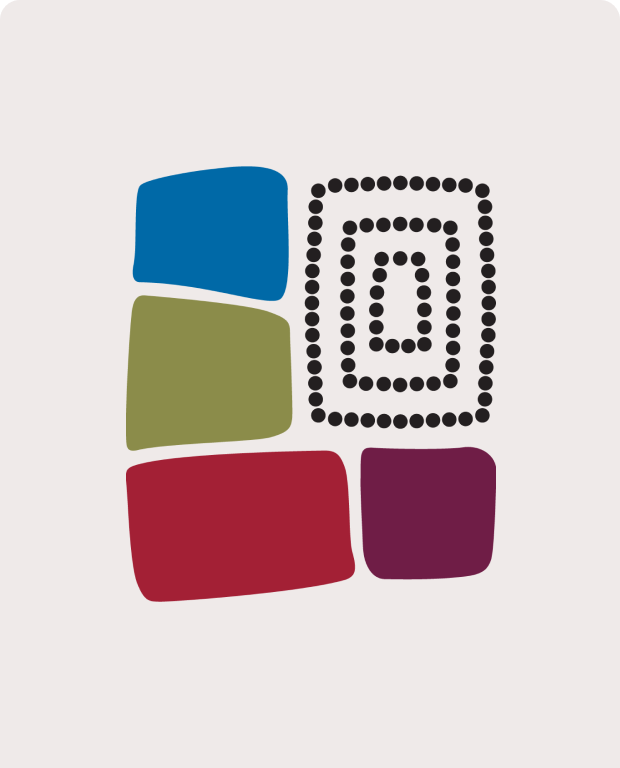Growing up children in two worlds

Growing up children in two worlds: Building Yolŋu skills, knowledge and priorities into early childhood assessment and support
Project Aim:
To privilege Aboriginal knowledge and provide a deeper understanding of the priorities and practices of early childhood development from the perspectives of community members in this cultural context, thus enabling more culturally responsive and relevant action to facilitate optimal child development.
Objectives:
- Privilege Yolŋu (Aboriginal) voices in generating child development and child rearing knowledge.
- Identify skills and knowledge (from both Aboriginal and Western domains) that Yolŋu families want their children to develop, and the strategies they use to foster this development.
- Strengthen the evidence base for culturally responsive and relevant assessment processes and support, which distinguishes ‘difference’ from ‘deficit’, to facilitate optimal child development.
Project Team:
Program leads: Associate Professor Anne Lowell, Associate Professor Elaine Läwurrpa Maypilama, Charles Darwin University
Administering organisation: Charles Darwin University
Project time line: 1 January 2016—31 December 2018
Methodology
Researchers from the Research Centre for Health and Wellbeing at Charles Darwin University continued a long history of working in partnership with the Yalu Marŋgithinyaraw Indigenous Corporation, a community-based cultural education and research organisation.
The research team also collaborated with SNAICC, the national voice for Aboriginal and Torres Strait Islander children, to enhance wider relevance and dissemination of research findings.
This research project was a qualitative study that included:
- Videotaping of six case study children engaged in a range of everyday activities and interactions by family members.
- Reviewing the videos with family members and Yolŋu researchers.
- In-depth interviews using a narrative approach to further explore experiences and perspectives related to early childhood.
Other elements of the project included:
- Data from all sources was translated into English and transcribed.
- A qualitative data management program (QSR NVivo 10) was used.
- A framework was developed of key features of child development and child rearing, developmental assessment processes and support relevant to the needs and priorities of participants.
- Web-based multimedia resources were developed.
- The Community Advisory group acted as a community backbone committee and advised on all aspects of the research processes.
- The Expert Advisory Group SNAICC consulted a group of Aboriginal and Torres Strait Islander experts.
Project Findings
This three-year project expanded and extended previous collaborative research that was developed in response to community concerns about lack of recognition of Aboriginal early childhood strengths, priorities and knowledge in North-East Arnhem Land.
As a direct response to concerns expressed by senior community members the project provides the opportunity for Yolŋu to influence the ways in which the development of their children is assessed and supported.
Among a range of outcomes and impacts, it:
- generated extensive empirical evidence that can inform improvements in early childhood assessment and support through a range of mechanisms
- highlighted a range of Yolŋu priorities and strengths in child development and parenting that were otherwise not known to outsiders or were overlooked, which can inform more culturally responsive and relevant early child development policies and practices
- found that the development of a strong cultural identity through an intensive focus on building children’s understanding of their connections to people, place and other elements of the natural world is a high priority for Yolŋu families
- identified that families used purposeful and intensive strategies to support and assess development of language, physical and emotional strength as well as resilience in children.
The Growing Up Children in Two Worlds evolving project website is one platform for sharing Yolŋu knowledge and ideas about child development and child rearing from the findings of the research project. It will also function as a community-developed tool for strengthening and maintaining Yolŋu knowledge and practice related to child development and child rearing.
Project leader Associate Professor Elaine Läwurrpa Maypilama summarised the following longer-term expected outcomes from the project:
“We are making resources for Yolŋu that they can use. Also, if we show those videos to the world, it shows our ŋayuŋur (deepest feelings). To show other people, whoever, wherever they are all over the world, that we do that every day of our life journey. They can see what is happening in our eye and they might say ‘OK’, and it might help to change their action and change the policies.
“We are showing our children to the world to show how Yolŋu do it. This is evidence. They can nhäma (see) and improve. Improve their actions and their assessments and their policies. The people who see this website and research should recognise and respect how Yolŋu do it. Recognise, value, and respect. When we show that we get more stronger, more resilient, because we know that we are showing that to the world that this is how we live, and this is how we learn, and this is how we grow our children.”
Project Outcomes
| Knowledge |
|
| Awareness |
|
| Behaviour |
|
| Skills |
|
| Other |
|
Related resources:
- Building Yolŋu Skills, Knowledge, and Priorities into Early Childhood Assessment and Support: Protocol for a Qualitative Study, Lowell, A. et.al. JMIR Research Protocols, 7(3), 1-8. [e50].
- Growing up children in two worlds website

